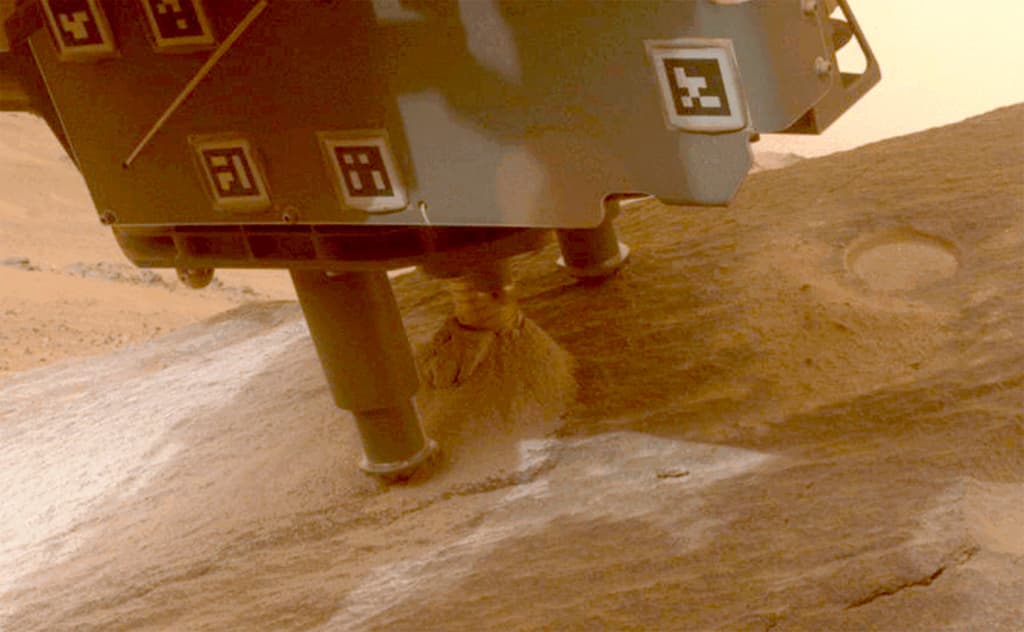Nasa's spacecraft Perseverance has found a stone on Mars that may indicate that microorganisms existed on the planet billions of years ago.
The stone has, among other things, white veins of calcium sulfate that could be evidence that water – which is crucial for life – once flowed through the rock where the stone was found. It also has so-called leopard spots.
On Earth, these types of features in stones are often associated with fossilized microorganisms beneath the surface, says David Flannery, astrobiologist at the University of Queensland, Australia, and member of the scientific team behind Perseverance.
The stone, which has been named Cheyava Falls, was found on July 21 in an old river valley on Mars. It is described as the most "perplexing, complex, and potentially important stone yet examined by Perseverance".
If it were to contain actual fossilized microorganisms, it could be the first evidence of life outside of Earth.
The hope is that the stone can be brought to Earth for further examination.
Perseverance arrived on Mars in 2021 and has the task of searching for signs of ancient life, among other things, in stone.






